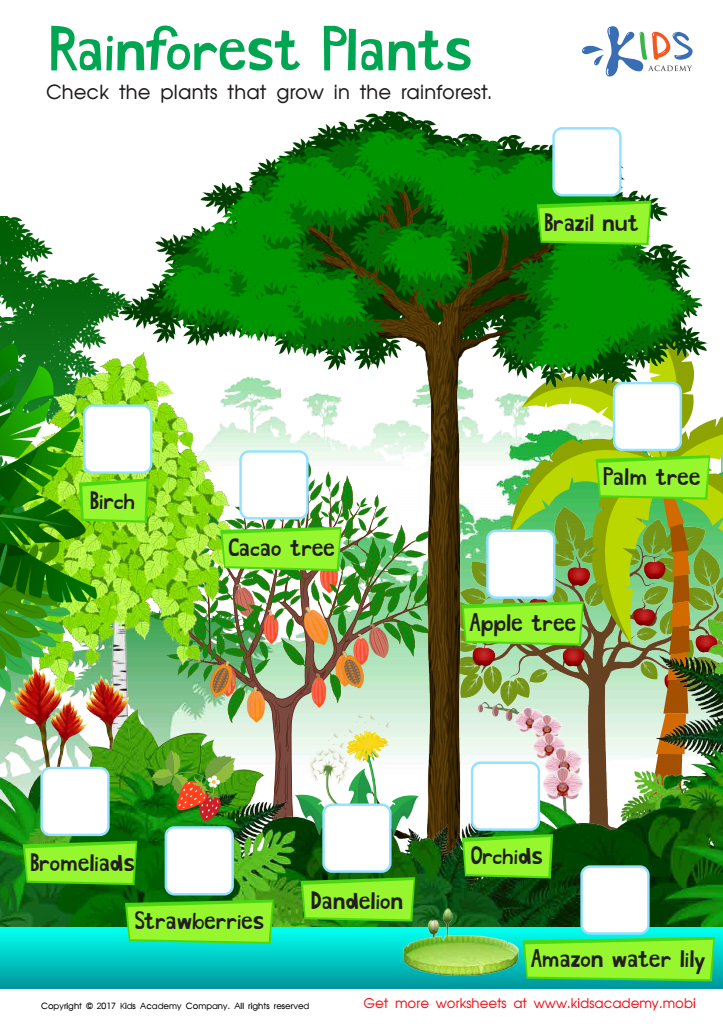Science exploration Worksheets for Kids
1 filtered results
-
From - To
Science exploration worksheets engage students in interactive learning about scientific concepts. These worksheets encourage hands-on exploration, critical thinking, and active participation. Students observe and analyze natural phenomena, conduct experiments, record data, and draw conclusions, enhancing problem-solving abilities and scientific literacy. The worksheets boost independent thinking and creativity by prompting students to design and conduct their own investigations. This results in a solid foundation in scientific knowledge and skills, offering an effective educational approach.
(Characters without spaces: 699)


Rainforest Plants Worksheet
Question/Answer
What are some effective activities to train students’ Science exploration skill when teaching them about Life Science?
Effective activities for training students' Science exploration skills in Life Science include hands-on experiments (like dissecting plants or observing microorganisms under a microscope), engaging in outdoor field studies (such as exploring ecosystems or biodiversity in nearby natural settings), conducting virtual lab simulations, and utilizing inquiry-based learning projects (where students pose questions, conduct research, and present their findings).
How does the mastery of the Science exploration skill affect a student's performance at an early age?
Mastery of the Science exploration skill at an early age significantly enhances a student's performance by fostering curiosity, critical thinking, and problem-solving abilities. It encourages active learning and understanding of scientific concepts, making students more engaged and better equipped to apply knowledge across various subjects, leading to improved academic outcomes and a strong foundation for future scientific learning and inquiry.
How to test a Grade 2 student’s Science exploration skills?
To test a Grade 2 student's Science exploration skills, design simple, hands-on experiments or activities related to their curriculum, such as observing plant growth, exploring materials' properties, or basic physical science experiments. Assess their ability to make observations, predict outcomes, follow step-by-step procedures, and describe what happened during the experiment, emphasizing their curiosity and engagement with the scientific process.
 Assign to the classroom
Assign to the classroom










